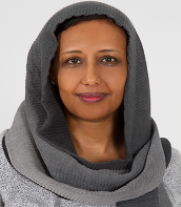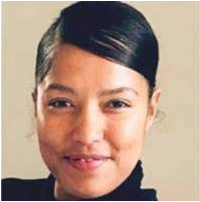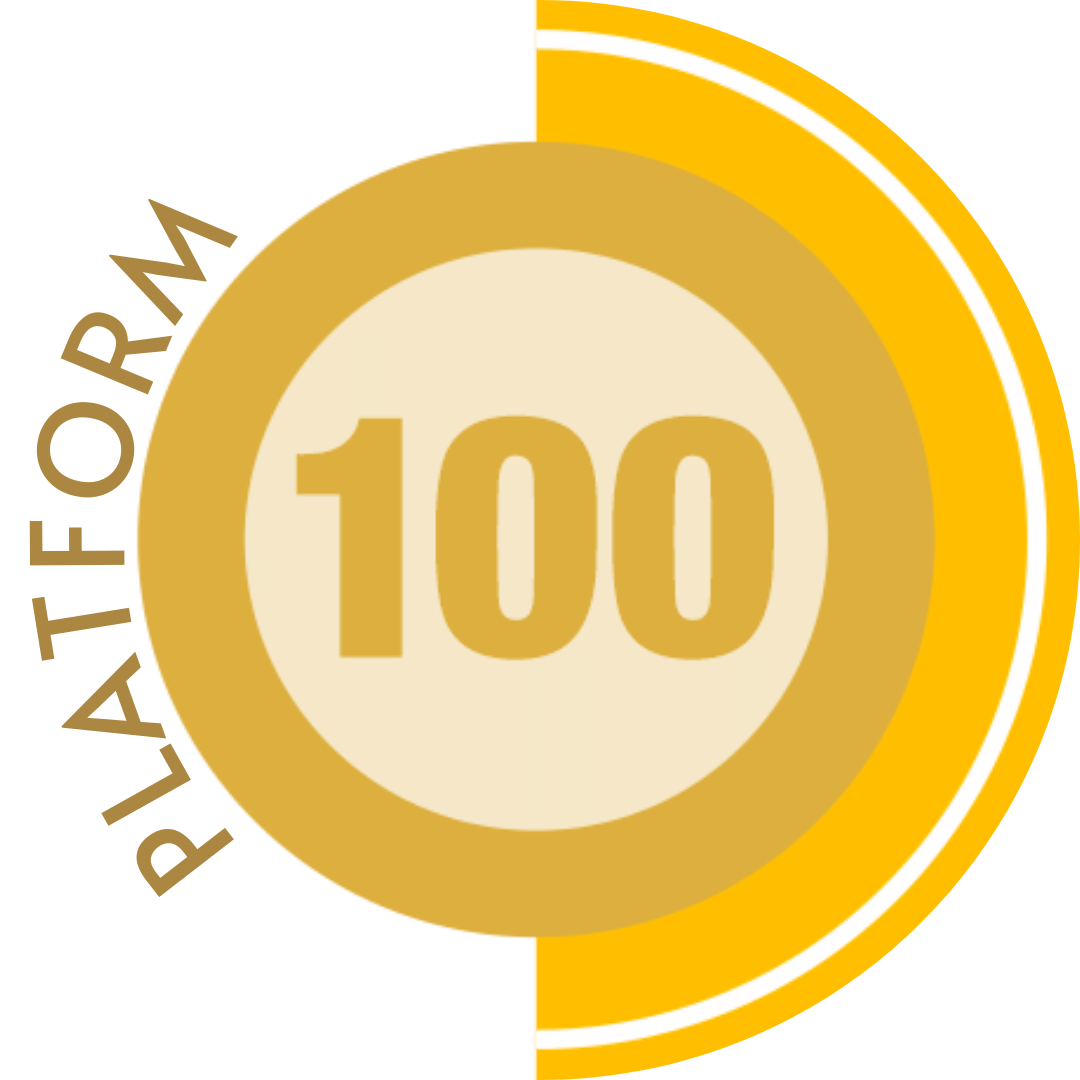Our People

Professor Amira Osman
Research Chair
Amira Osman is a Sudanese/South African architect, researcher, academic, activist, public speaker, and author.
She is now gaining experience in the world of publishing. She is a Professor of Architecture at the Tshwane University of Technology. She currently holds the position of SARChI: DST/NRF/SACN Research Chair in Spatial Transformation (Positive Change in the Built Environment).
Amira believes that the architectural profession has a critical role to play in the achievement of buildings, neighbourhoods and cities that are more equitable, beautiful and functional – creating environments that are lovable, increasing opportunities and offering people a better chance at improving their lives and livelihoods.
The belief that the profession has the potential to offer both technical and social expertise towards these aims is the driving force behind Amira’s work – indeed, she has spent most of her career advocating for these principles.
Amira obtained a PhD in Architecture from the University of Pretoria in 2004. She was a convener for the World Congress on Housing (2005) and the Sustainable Human(e) Settlements: the urban challenge (2012), she served as UIA 2014 Durban General Reporter and Head of the Scientific Committee for the International Union of Architects (UIA) and the South African Institute of Architects (SAIA), she was Chair of the Local Organising Committee for the 9th International Conference on Appropriate Technology (9th ICAT)(2020). She is a joint coordinator for the international CIB W104 Open Building Implementation network. Amira has extensive experience curating international events, coordinating complex programmes and exhibitions in terms of design, conceptualising content and managing diverse teams.
Mokena Makeka
Director
Mokena Makeka is a South African raised in Maseru, Lesotho and New York, USA and is an accomplished architect, artist, creative, curator, designer, global leader, scholar, speaker and urbanist. He is a Senior Advisor at Dalberg. He holds a BArch (Hons) with distinction from the University of Cape Town (UCT), and has various executive leadership qualifications, from the Harvard Kennedy School, Oxford University and others.
Mokena has extensive experience of leading, founding and serving on boards and these roles include the South African Heritage Agency, the Cultural and Creative Industries Federation of South Africa, Cape Town Heritage Trust, the Isandla Institute (ex-chairman of the board), Bush Radio Station (ex-chairman of the board), and Cape Africa Platform (ex-chairman of the board).
Mokena is a founding member of CCIFSA and served on the World Cup Art and Culture Committee for South Africa. He is a WCS (World Cities Summit) Young Leader and a founding director of Coalsackmedia, a graphic design and publishing company.
He is committed to social transformation, design and cities of spatial and ecological justice.
Emmanuel Nkambule
Director
Teaching
In 2011 Emmanuel Nkambule joined the Department of Architecture at University of Pretoria as a part-time lecturer and a doctorate student after lecturing at the Swaziland College of Technology from 2010 to 2011. Nkambule was then appointed a full-time lecturer in 2014 in the same department with an added responsibility of lecturing, administration, mentoring and supervising post-graduate students.
Emmanuel Nkambule did his first internship as a first year architecture student in 2003 with Design Architects in Mbabane, Swaziland. Nkambule then worked for KWP Architects in Pretoria, South Africa between 2003 and 2005 while studying for a BSc in architecture degree at the University of Pretoria. Thereafter, he worked for Africa South Architects as a senior architectural technologist in 2006 and then returned to KWP Architects from 2007 to 2008 while completing a Masters in Architecture. In 2009 to 2010, he worked for Brad Walker Architects in Swaziland, designing and supervising a variety of projects as well as lecturing at the Swaziland College of Technology in Mbabane, Swaziland.
From 2011 Nkambule has been involved in professional architectural work and research-based projects with D2N Architects, Nzuza Architects, Legae Architects, Msavheni Landscape Architects and Lindandanda Consulting.
Community Service
In March 2014 Emmanuel Nkambule served as a panelist for the planned upgrade of Entrance 2 at the South African National Biodiversity Institute’s (SANBI) Lowveld National Botanical Gardens in Nelspruit, Mpumalanga. Nkambule served as a panelist for 2010 European Union-funded projects, under the education sector, adjudicating tenders on behalf of the Ministry of Economic Planning and Development in Swaziland. As a 4th year student in 2007 at the University of Pretoria Nkambule participated in upgrading a facility for local artists in Mamelodi as part of the Research Project Housing elective.
Prof. Philip Harrison
Board Member
Previously, Prof. Harrison was Executive Director in Development Planning and Urban Management at the City of Johannesburg for 4 years from 2006 to 2010. Prior to that, he held a number of academic positions at the Universities of the Witwatersrand and Natal, including Professor and Chair of Urban and Regional Planning at Wits from 2001 to 2006.
He has published widely in the fields of city planning and regional and urban development. His most recent publication is the jointly edited book Changing Space, Changing City: Johannesburg after Apartheid.
Philippa Nyakato Tumubweinee
Board Member
In 2007 she joined the dept. of Architecture, University of Johannesburg (UJ) South Africa as the First-Year coordinator and Design Studio Master. In this role she was intimately involved in the recurriculation and programme development at the department.
Noteworthy in collaboration with the FIRST YEAR STUDENTS from 2007 to 2012 she held several public exhibitions centered around the documentation of the city of Johannesburg, the most notable exhibitions being held at the Main Change: MABONENG precinct and at the Gesso Studio in Melville, Johannesburg. From 2009 to 2012 she served on the board for the Gauteng Institute for Architects (GIfA) where she contributed to the re-branding and rejuvenation of GifA as an active vehicle through which the significance of architects and architecture is made visible in the broader society.
As a member of this Board, philippa was privileged to be part of the project team that brought that first international architectural festival AZA 2010 to the shores of South Africa.
In March 2012 till March 2017 she joined the dept. of Architecture, University of the Free State whilst working on her doctoral degree. In 2012 she served on the National Judging Panel for the SAIA Awards of Merit and Excellence and presented a paper on one of her projects the Esquared House at the ARCH THEO ’12 conference in Istanbul. She was also the co-Master of Programme and Ceremonies at the second AZA 2012 Architectural Conference in Cape Town and gave the keynote at the NEXUS Architectural Students Conference, Australia.
As a result, in 2013 she served on the National Judging Panel for the prestigious AfriSAM Sustainability Awards.
Tumubweinee’s commitment to architectural education has developed through her involvement as an external examiner for MProf and BHons students in Architecture at, the University of Pretoria and Namibia University of Science and Technology.
Tumubweinee is an avid and active presence in the design industry in South Africa with a crippling weakness for shoes, art and rugby.
Dr. Sechaba Maape
Board Member
Dr. Sechaba Maape is an architect and senior lecturer at the University of the Witwatersrand (Wits) School of Architecture and Planning. He is the Director of Afreetekture.
He is currently working on various research projects, and teaches design and theory of architecture, theory and history of architecture, and supervises master’s thesis projects in architecture professional as well as architecture focusing on energy-efficient cities. He currently lives in Johannesburg South Africa, although spends a considerable amount of time visiting ritual sites all over the country.
Stephan De Beer
Board Member
Stephan spent six months in Chicago in 1992, doing coursework in urban ministry and development, visiting almost forty urban projects, and connecting with faith-based social entrepreneurs in and around Chicago leading a movement of urban transformation.
Chicago also influenced Stephan in unexpected ways; interacting with exiled South Africans who revealed a new layer of his home country and a South African experience he never knew. In 1993 he joined International Urban Associates, which draws together faith-based urban practitioners from around the world. This network continues to help Stephan generate ideas and provide outlets for expansion.
Returning to South Africa, Stephan sensed that urban churches were ready to engage in reviving their parishes. He united six into a charitable trust that became Pretoria Community Ministries, with the knowledge that urban regeneration efforts had to become more radical, holistic, and transformative.
His long-term vision is for every vulnerable group to have access to tailored programs that serve their needs for regeneration and enable them to serve others through local institutions.

